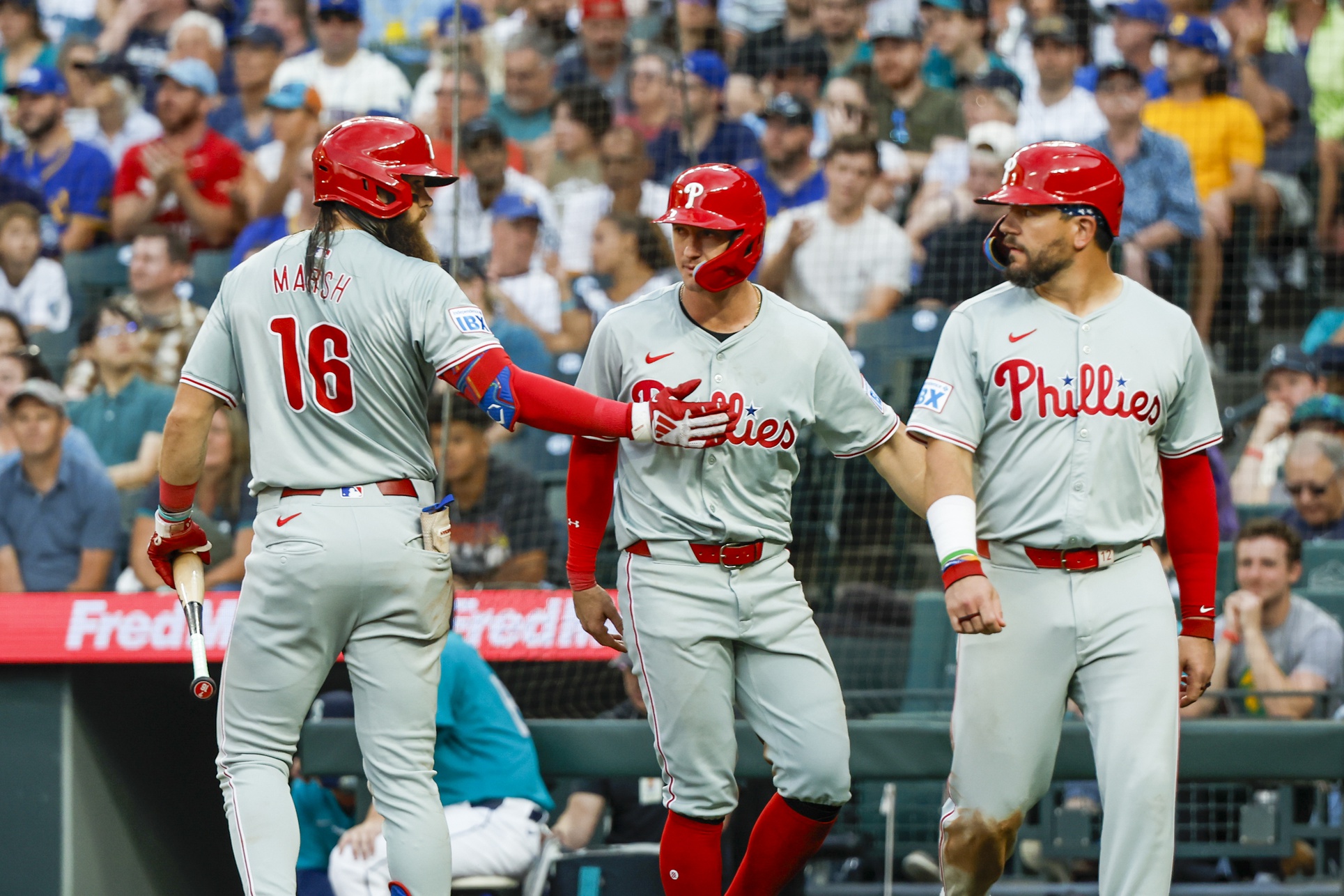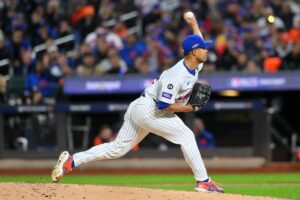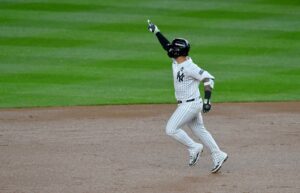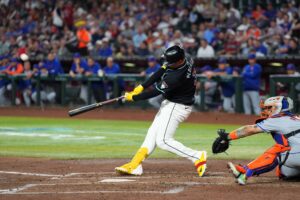Since being traded, Philadelphia Phillies outfielder Austin Hays has solidified his role as an everyday starter. Initially, it was anticipated that Hays would platoon with Brandon Marsh in left field. However, a day after the trade, Phillies manager Rob Thomson indicated Hays would be the starting left fielder. So far Marsh has been primarily playing center field instead of platooning with Johan Rojas. Nick Castellanos being in right field most days has been the most stable part of the Phillies outfield this season. A Hays-Marsh-Castellanos outfield going from left to right will be the standard alignment.
Austin Hays Performance Since Joining the Phillies
In nine games with the Phillies, Hays has a .270/.289/.405 batting line with one home run, four RBI and two stolen bases. During that time, Hays has a 93 wRC+ and a .360 BABIP and owns a 0.2 fWAR since his arrival. Hays has a 28.9 percent strikeout rate and a 0.0 percent walk rate with the Phillies, both worse than with the Orioles. However, it’s important to note that there is a 137 plate appearance difference. Hays has a higher batting average and slugging percentage with the Phillies but a lower on-base percentage.
During his time with the Phillies, Hays has had three multi-hit games. He also has scored a run in five of the nine games with Philadelphia. But that’s not all, he hit a home run and achieved four RBI on July 30. Since joining the Phillies, Hays has had three extra-base hits and his first two stolen bases of the season. FanGraphs indicates that Hays has a better Fielding Run Value in left field with Philadelphia than he did with Baltimore.
How This Impacts Marsh and Rojas
As Hays solidifies his role as the Phillies starting left fielder Marsh has become the starting center fielder. Marsh is now actually getting chances to play against left-handed pitchers. On July 21 Marsh had a .378 OPS and a 10 wRC+ against left-handed pitchers. Now Marsh has a .508 OPS and a 44 wRC+ against left-handed pitchers. Marsh has had eight at-bats against left-handed pitchers since July 21. In 11 games since the Hays trade, Marsh has a .225/.311/.425 line with two home runs and seven RBI. In that span, Marsh has a 106 wRC+ and a .292 BABIP. Defensively in center field this season Marsh has three Defensive Runs Saved and a Fielding Run Value of two per FanGraphs.
Since the Hays trade, Rojas has been benched for most games. In the five games following the trade, he has not hit any home runs or RBI and has maintained a .400/.400/.400 line with no extra-base hits. However, his 128 wRC+ and .500 BABIP show some promise. It might be beneficial to send Rojas to Triple-A Lehigh Valley for more playing time, especially since the club needs outfield depth. There is also Ryan McKenna, who recently joined the team on a minor league deal. It’s important to note that major league rosters will expand to 28 on September 1.
What Happens if Rojas Is Optioned
If Rojas is sent down to Triple-A Lehigh Valley, a left-handed bat or a switch hitter will likely be brought up. Currently, Garrett Stubbs is the only left-handed bat on the Phillies bench. If Rafael Marchán returns to the Phillies 26-man roster this season, it probably will not be as the corresponding move here. This move is more likely to happen on September 1. Stubbs does have a minor league option available. There was some confusion about this online after a late-game potential pinch-hit situation recently. Carrying three catchers before rosters expand does not make much sense. To make it clear, Stubbs can be sent down, and they can call up Marchán to take his place.
Apart from Marchán, three position players on the Phillies’ 40-man roster are not currently in the majors. These players are Darick Hall, Buddy Kennedy, and Rodolfo Castro. Hall is a left-handed batter, Kennedy is a right-handed batter, and Castro is a switch hitter. As the Phillies’ outfielder solidifies his role, it will have roster implications elsewhere. Rojas will likely stay in the majors.
Main Photo: © Joe Nicholson-USA TODAY Sports






